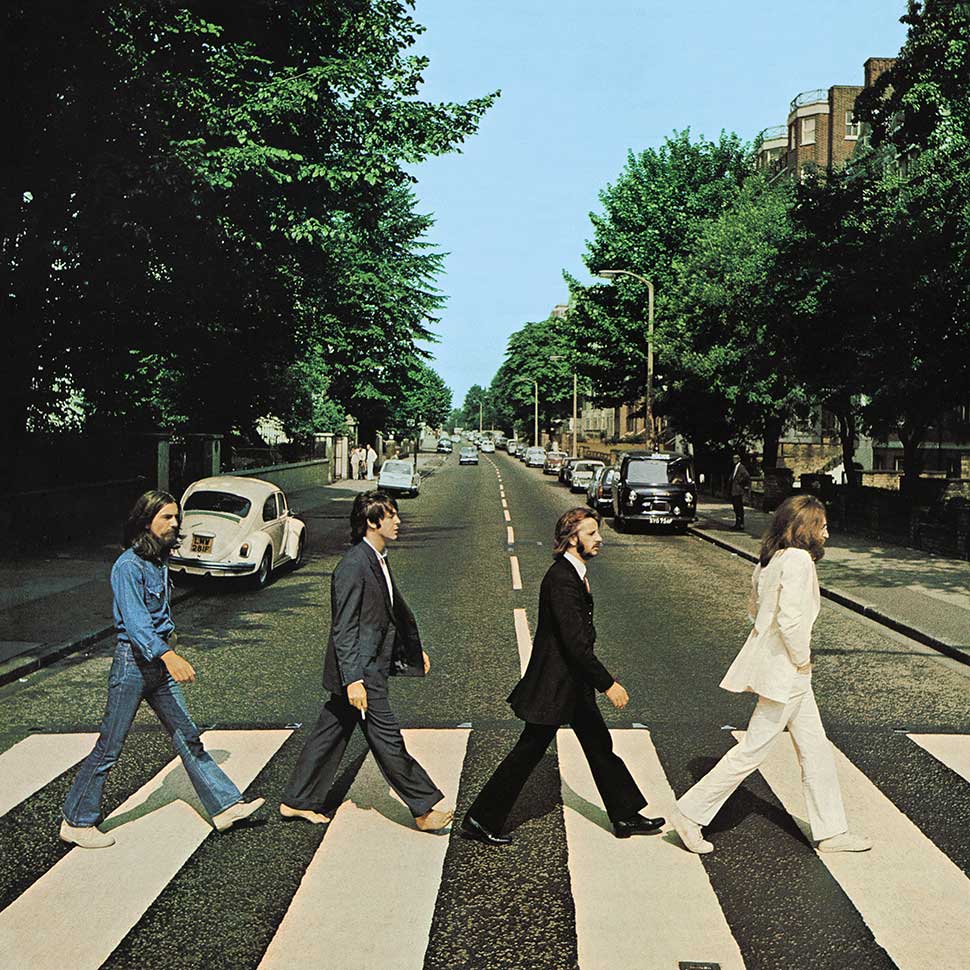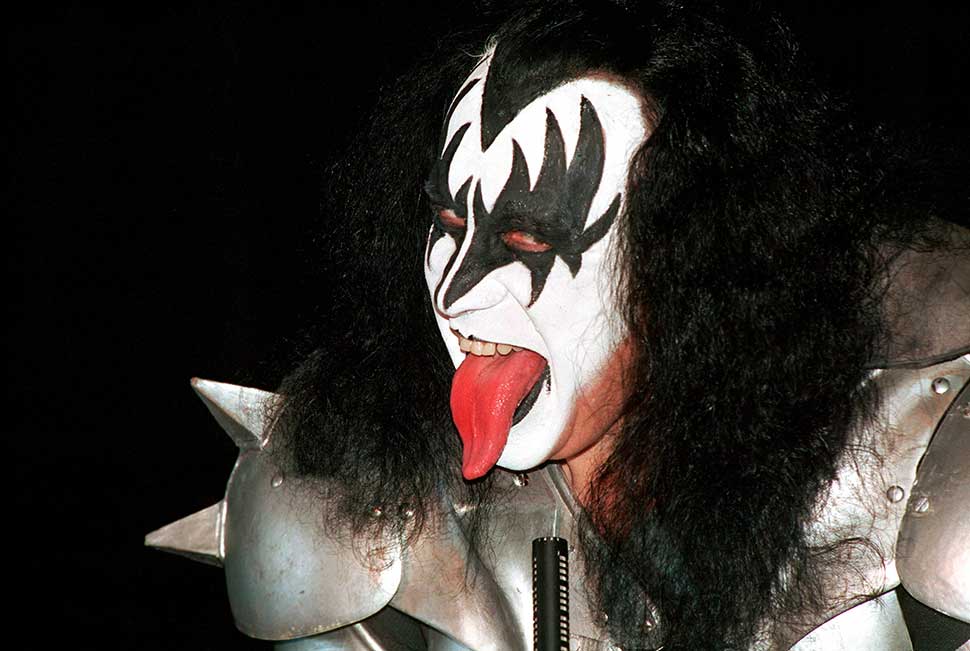The 10 greatest conspiracy theories in rock
In a world where fake news runs rampant, rock'n'roll is not immune to the lure of the conspiracy theory. These are 10 of the most ludicrous

Conspiracy theories, myths and legends have existed in rock’n’roll for as long as the music has existed, stretching all the way back to bluesman Robert Johnson selling his soul to the devil at the crossroads in exchange for superhuman guitar skills, fame and fortune.
There are those who believe Elvis Presley and Jim Morrison live on, others who think the Illuminati control the world through symbolism in popular culture, and plenty of evangelical types with their own agendas trawling rock and metal songs for secret messages luring the innocent to the dark side.
Let us take a look, then, at rock’n’roll conspiracy theories ranging from the intriguing to the ludicrous, as we try to separate the truth from the codswallop.

Lemmy was in league with the Illuminati
Few men have ever been earthier than Lemmy, but one conspiracy theorist claims that the Motorhead legend didn’t really die in December 2015, instead “ascending into the heavenly realm” after making a “blood sacrifice pact” with the Illuminati.
A “watcher” of the mythical secret society some believe are running the world – despite evidence that is at best flimsy, at worst straight from The Da Vinci Code author Dan Brown’s discarded notebooks – told the Daily Star: “Lemmy signed up for the ultimate pact – he signed his soul to the devil in order to achieve fame and fortune.”
While we can only imagine what the great man would have to say on the matter, there’s one word, in husky, JD-soaked tones, that we can just about make out coming across from the other side: “Bollocks.”
Paul McCartney died in 1966
As you might expect from the most famous band that has ever existed, there are enough crackpot theories about The Beatles to fill the Albert Hall. From John Lennon’s murder being ordered by the US government, who, led by Richard Nixon, suspected him of communism (the FBI actually did have a file on Lennon, but the story is spiced up by the man behind murderlennontruth.com, who apparently believes author Steven King was involved due to, uh, looking a bit like Mark Chapman) to Canadian prog outfit Klaatu being the Fab Four in disguise, there are plenty of tall tales more colourful than a Ringo B-side.
Sign up below to get the latest from Classic Rock, plus exclusive special offers, direct to your inbox!
The most enduring, though, is the notion dreamt up by some US radio DJs that Paul McCartney died in a car crash in 1966 and was replaced by a lookalike. They came to this conclusion having studied the cover of Abbey Road – McCartney’s bare feet on the zebra crossing apparently symbolising death, while others found “evidence” in the album’s opaque lyrics. There were a lot of drugs in the 60s. Don’t do drugs.

Gene Simmons has a cow’s tongue
It’s easy to see why all kinds of far-fetched stories sprung up when Kiss first took off in the 1970s. The fake-blood-spitting, the fire, the demon-superhero personas – middle America clutched its pearls and word spread that these otherworldly weirdos’ moniker stood for Knights In Satan’s Service. Spoiler alert: it doesn’t.
It was Gene Simmons’ preposterous mouth that got the nation’s less voluminous tongues wagging though. So long and pointy is his appendage, and so often waggled at his audiences (whether they asked for it or not), that eventually the rumour spread around the world’s playgrounds was that he’d had a cow’s tongue grafted onto his own. The bovine baloney is, of course, bullshit, but Simmons has admitted it's one of his favourite Kiss urban myths.

Supertramp predicted 9/11
The Logical Song may be Supertramp’s calling card, but one man in the US stretches common sense to the limit having come to the conclusion that the artwork for their 1979 album Breakfast In America gave prior warning of the terrorist attacks on New York on September 11, 2001.
Look at the album cover – painted from the perspective of a window on a flight into the city – in a mirror, and the ‘u’ and ‘p’ band’s name appears to become a 911 floating above the twin towers, while a logo on the back features a plane flying towards the World Trade Center.
So far, so coincidental, but when our intrepid investigator falls down a rabbit hole of Masonic interference, strained Old Testament connections (“The Great Whore of Babylon – Super Tramp”), and the title Breakfast In America reflecting the fact that the planes crashed early in the morning, things get really tenuous.
It’s fair to say it’s unlikely a British prog-pop band had prior knowledge of the terrorist attacks 22 years before they happened. But maybe Al Qaida were really big fans.

Stevie Wonder can see
Stevie Wonder is a genius. That fact is not up for dispute. The soul/jazz/funk/rock/pop legend was born six weeks prematurely in 1950, and the oxygen used in the hospital incubator to stabilise him caused him to go blind shortly afterwards. But his love of front-row seats at basketball games, the evocative imagery in his songs, and the fact that he once effortlessly caught a falling mic stand knocked over by Paul McCartney (who, let us reiterate, did not die in 1966) has caused basement Jessica Fletchers to muse that he’s faking his blindness as part of the act.
Wonder himself, a known prankster, has great fun with his status as one of the world’s most famous vision-impaired musicians. In 1973, he told Rolling Stone: “I’ve flown a plane before. A Cessna or something, from Chicago to New York. Scared the hell out of everybody.”
Dave Grohl invented Andrew W.K.
When Andrew W.K. first broke through in the early 2000s, dressed in white and covered in blood, his mission was serious in its simplicity: the party is everything. He took his message of having a good time, all the time, to levels of political fervour. But rumours of his authenticity have been doing the rounds from the start.
Reviewing WK’s first UK show at The Garage in London, The Guardian’s Alexis Petridis wrote: “One music-biz conspiracy theory currently circulating suggests that Andrew W.K. is an elaborate hoax devised by former Nirvana drummer Dave Grohl.”
As time went on, the theory gained traction – Grohl was believed to be the mysterious Steev Mike credited on the debut album I Get Wet. And as W.K.’s style changed over subsequent records, and his own admission that there were legal arguments over who owns his name, whispers began that he wasn’t even a real person – he was a character, played by several different actors, an attempt to create the ultimate Frankenstein’s frontman.
"I'm not the same guy that you may have seen from the I Get Wet album," W.K. said in 2008. “I don't just mean that in a philosophical or conceptual way, it's not the same person at all. Do I look the same as that person?" The jury is out, but if this is a great white elephant concocted just for the sheer hell of it, we kind of want this one to be true.
Jimi Hendrix was murdered by his manager
An early victim of the 27 club, the death of Jimi Hendrix was depressingly cliched for a man so wildly creative: a bellyful of barbiturates led to him asphyxiating on his own vomit, according to the post-mortem. But in the years following the grim discovery at the Samarkand Hotel in London on 19 September 1970, a different theory was offered by the guitarist’s former roadie, James “Tappy” Wright.
In his book Rock Roadie, Wright claims Hendrix was murdered by his manager, Michael Jeffery, who he says force-fed his charge red wine and pills. The motive? He feared he was about to be fired and was keen to cash in on the star’s life insurance. One thing we do know for certain is Jeffery won’t be able to give his version of events, as he was killed in a plane crash over France in 1973.
The 50th anniversary of Hendrix's tragic passing was "celebrated" with the release of Hendrix and the Spook, a documentary that "explored" his death further and was described by The Guardian as "a cheaply made mix of interviews and dumbshow dramatic recreations by actors scuttling about flimsy sets in gloomy lighting." Sounds good.
Courtney killed Kurt
Courtney Love is no stranger to demonisation from Nirvana fans. When Hole’s second album, the searing, catchy, feminist, witty, aggressive, vulnerable and unflinchingly honest Live Through This was released, days after Kurt Cobain’s death, rumours almost immediately started up that Love’s late husband wrote the songs. That was insulting and sexist enough, but nowhere near as damaging as the conspiracy theory that Love hired a hitman to kill Cobain amid rumours they were about to divorce.
After Cobain’s first attempt to take his own life in Rome, the Nirvana frontman was eventually convinced to go to rehab following an intervention by his wife and friends. He ran away from the facility, and the private investigator hired by Love to find him, Tom Grant, eventually became the source of the idea that Love and the couple’s live-in nanny Michael Dewitt were responsible for Cobain’s death shortly afterwards.
His claims, made in the Soaked In Bleach documentary, include the notion that Cobain had too much heroin in his system to pull the trigger of the shotgun, and that he believed the suicide note was forged.
People close to Cobain (and the Seattle Police Department) have refuted the theory, including Nirvana manager Danny Goldberg: “It’s ridiculous. He killed himself. I saw him the week beforehand, he was depressed. He tried to kill himself six weeks earlier, he’d talked and written about suicide a lot, he was on drugs, he got a gun. Why do people speculate about it? The tragedy of the loss is so great people look for other explanations. I don’t think there’s any truth at all to it."
The CIA wrote The Scorpions’ biggest hit
Previously synonymous with leather, hard rock anthems and some very questionable album artwork, West Germany’s Scorpions scored big with Wind Of Change, a power ballad heralding the oncoming fall of the USSR, the end of the Cold War, and a new sense of hope in the Eastern Bloc.
In a podcast named after the 1990 song, though, Orwell Prize-winning US journalist Patrick Radden Keefe follows rumours from within the intelligence community that the song was actually written by the CIA, as propaganda to hasten the fall of the ailing Soviet Union via popular culture.
“Soviet officials had long been nervous over the free expression that rock stood for, and how it might affect the Soviet youth,” Keefe is quoted as saying. “The CIA saw rock music as a cultural weapon in the cold war. Wind of Change was released a year after the fall of the Berlin Wall, and became this anthem for the end of communism and reunification of Germany. It had this soft-power message that the intelligence service wanted to promote.”
It's a convincing theory, but one that is disputed by Scorpions frontman Klaus Meine: “I thought it was very amusing and I just cracked up laughing. It’s a very entertaining and really crazy story but like I said, it’s not true at all. Like you American guys would say, it’s fake news."
There are satanic messages in Stairway To Heaven
The great comedian Bill Hicks had something to say about people searching for evidence of devilry in rock’n’roll: “Remember this shit, if you play certain rock albums backwards there'd be satanic messages? Let me tell you something, if you're sitting round your house playing your albums backwards, you are Satan. You needn't look any further. And don't go ruining my stereo to prove a point either.”
The memo didn’t get through to televangelist and stylus ruiner Paul Crouch, who in 1982 attempted to scare the Christian right into believing Led Zeppelin’s Stairway To Heaven was stuffed with demonic meaning, and that played backwards it revealed the following message: “Here’s to my sweet Satan/The one whose little path would make me sad, whose power is Satan/He will give those with him 666/There was a little toolshed where he made us suffer, sad Satan.”
Guitarist Jimmy Page, of course, is no stranger to the esoteric, making no secret of his interest in occultist Aleister Crowley and the attendant magick, and there were even rumours the band made a Faustian pact to achieve fame and fortune. But hiding messages backwards in the songs? That seems to be a faff too far even for them.
Emma has been writing about music for 25 years, and is a regular contributor to Classic Rock, Metal Hammer, Prog and Louder. During that time her words have also appeared in publications including Kerrang!, Melody Maker, Select, The Blues Magazine and many more. She is also a professional pedant and grammar nerd and has worked as a copy editor on everything from film titles through to high-end property magazines. In her spare time, when not at gigs, you’ll find her at her local stables hanging out with a bunch of extremely characterful horses.

